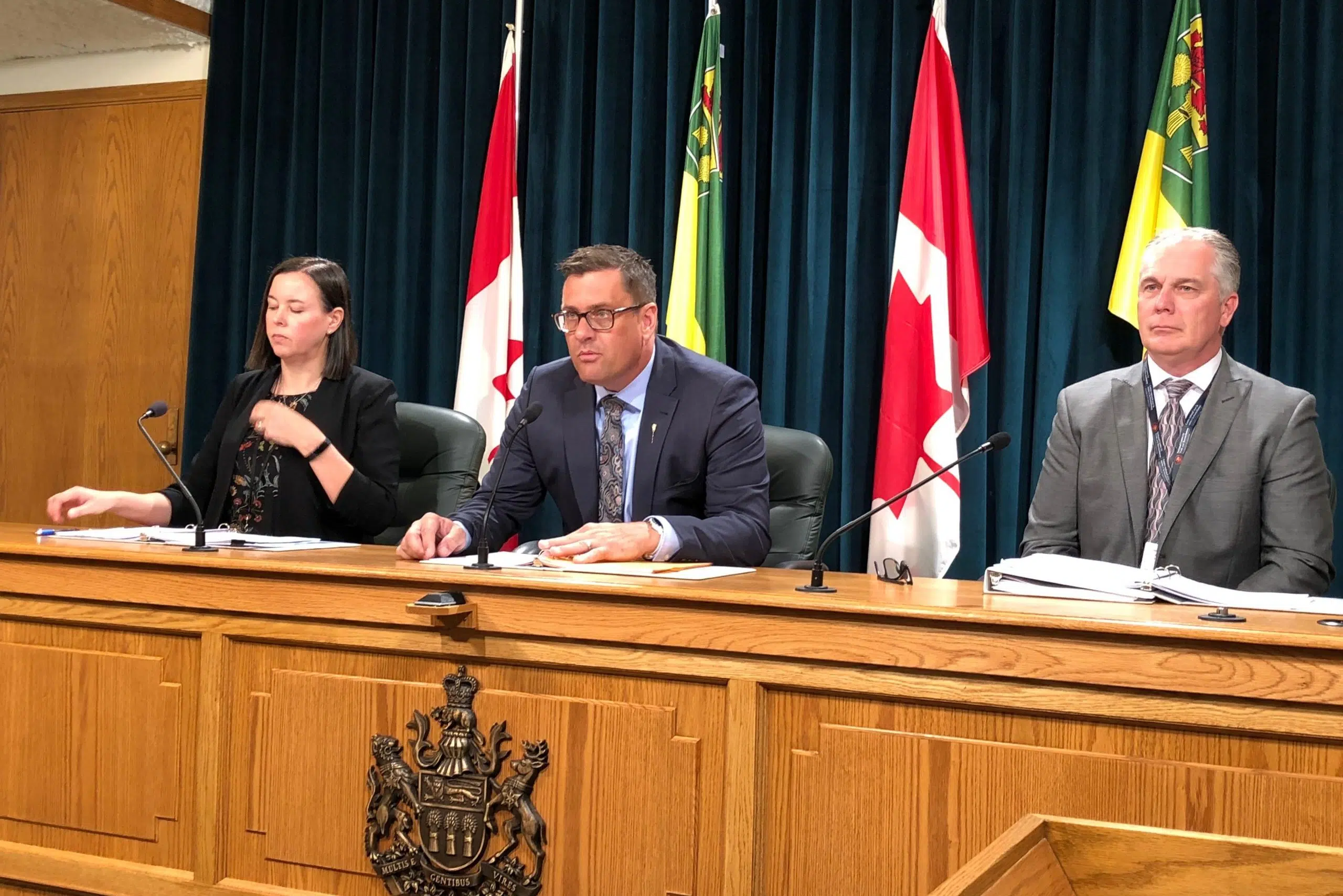The province is making it easier for those seeking income assistance, merging two existing programs into a brand new one.
The new Saskatchewan Income Support (SIS) program will accept new clients starting July 15. It’s meant to replace what the government calls a complicated and cumbersome system that takes client time away from case workers.
Clients currently on the Saskatchewan Assistance Program (SAP) or Transitional Employment Allowance (TEA) will remain on those programs until they are wound down by the summer of 2021.
“While our programs provide for clients’ basic needs, none of these processes helped our clients actually deal with the challenges that brought them to us in the first place,” Social Services Minister Paul Merriman said Tuesday.
The province wants to improve its relationship with its clients, making a fundamental change with how it interacts and supports those receiving income assistance.
Merriman said applying for the existing programs involve multiple, time-consuming steps where clients often have to tell their stories repeatedly, in person or over the phone.
He added the existing income assistance system was designed with the best intentions, but too many people aren’t achieving their goal of becoming self-sufficient.
“We should be working with our clients more to help them become self-sufficient, gain employment, start a career and possibly overcome their life challenges. All we are doing is helping people get by when we should be helping them get ahead,” said Merriman.
Under the new program, case workers will help clients reach their goals through what’s called motivational interviewing.
“We want to be seen as a partner with them. This isn’t us telling them what to do. It’s empowering them to make the decisions on where they need to go in life,” said Merriman.
Motivational interviewing will initially be done when clients sign up for income assistance. Staff will sit down with clients, talk about their goals and form a plan to make positive decisions. New tools will also be available to help build confidence, including financial literacy training and household budgeting.
The NDP’s Carla Beck questioned the government’s plan based on the staff’s workload.
“I think the minister needs to go down and look at the folks on the front line and get a sense of what their caseload currently looks like, how much time they have to spend, how many people are on their caseloads, and explain where they’re going to find the time to sit down and do budgeting, and do motivational interviewing with very little training,” Beck said.
The province also is updating its IT system, which dates back to the 1970s. That will allow for flexible payment dates and an online application process, eliminating a lot of paperwork required under the current system.
“There are a lot of forms. It’s very cumbersome. Sometimes a client will have to tell their same story two or three different times. With the new program and the motivational interviewing, it builds their case file right up front,” Merriman said.
The SIS program will have higher income exemptions than the old programs, allowing clients to gain employment and keep more of what they earn before benefits are reduced.
While applying for most of the benefits under the current system, clients submit receipts and documentation of what they need to buy.
For example, a client applying for the Children’s Benefit would say they need a crib and baby clothes. The province then gives them the money to purchase those items. Under the SIS program, the government will pay out the eligible benefits and it’s the client’s responsibility to then purchase the items.
Merriman said he’s not worried about abuse of the system, because of a closer relationship formed through motivational interviews.
“We’re going to put a lot of faith in our clients for them to become more independent and choose how they spend their money,” Merriman said. “At the end of the day, it’s their money and if they want to spend it the way they will, that’s their decision.”
As of July 15, the SAP and TEA programs will no longer accept new applications. Those clients have two years to voluntarily sign up for the SIS program before the old programs wind down in the summer of 2021. There are no changes being made to the Saskatchewan Assured Income for Disability (SAID) program.
As it learns what is working well and what needs to be improved, the province plans to make changes moving forward, to ensure the new SIS program meets the needs of its clients.
— With files from 980 CJME’s Nathan Meyer











